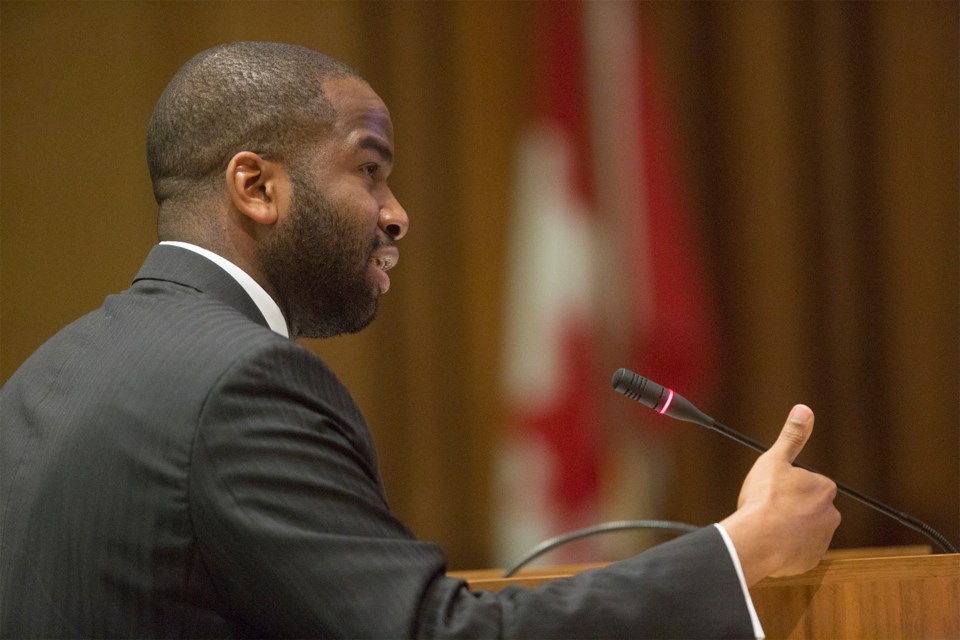With the federal government’s new budget in hand, the Member of Parliament for Guelph will get a second chance to face local business leaders that he says were furious over formerly proposed changes to tax rules for small businesses.
When the government of Canada announced last summer that it planned to make changes to the tax rules for small businesses, Guelph MP Lloyd Longfield received an earful during a roundtable discussion with local business leaders in the fall.
Among the proposed changes was restricting small businesses from making passive investments unrelated to the business.
After receiving months of backlash, Canada’s finance minister Bill Morneau eventually decided to scrap much of the plan.
In the government’s newly-released 2018 federal budget, those rules overseeing passive investment income for small businesses have been tweaked to the favour of both the Canadian Taxpayer Federation and Canadians for Tax Fairness.
Kithio Mwanzia, president of the Guelph Chamber of Commerce, said he is concerned a commitment has not been made to consider major changes to Canada’s tax code, which he called ‘archaic’.
In March, Longfield will invite back the businesses that participated in the fall roundtable to update them on changes to the tax code for small businesses.
“I am giving them the update on passive investments and the things they were furious about last summer to say, ‘here is what we have,’” said Longfield.
Mwanzia said the small business tax issue that arose last fall was only a symptom of a larger problem — that Canada’s tax and regulatory system hasn’t been looked at in 40 years.
“There are businesses that exist today that didn’t exist back then, with the change in technology and innovation and the way people think about doing business,” said Mwanzia.
Even more concerning, said Mwanzia, is a complete overhaul of the U.S. corporate tax structure under the leadership of President Donald Trump.
“It is clear that our biggest trading partner, the United States, is moving forward on tax and regulatory changes that will be able to spur on all kinds of investment. We worry what that is going to mean for Canadian businesses,” said Mwanzia.
The spending presented in the 2018 budget is contingent on a growing economy, which is not a sure thing, said Mwanzia.
“If we get in a situation where those economic growth numbers aren’t hit because of this archaic tax and regulatory system, it’s going to have a huge implications for the Canadian economy and Canadian businesses,” he said.
To compound matters, the United States, Canada and Mexico are currently renegotiating the North American Free Trade Agreement.
Mwanzia sits on the Canadian Chamber of Commerce’s international affairs committee and said he is keenly watching the negotiations, with numerous Guelph manufactures and agri-food producers likely to be affected by any changes to NAFTA.
He said he is not surprised changes to NAFTA are not addressed in the budget.
“It’s a negotiation like any other and you just wouldn’t see that in a budget,” said Mwanzia.
Longfield defends the government’s decision to break a campaign promise to present a balanced budget by the year 2019, calling this year’s budget an ‘aspirational document’.
“Budgets are a place where you can say, ‘if you want to have equality with women and girls, how do we do that?’ Setting up funding to look at pay equity and setting up funding for women in technology positions or setting up funding for daycare spaces — it’s complicated,” said Longfield.
Mwanzia said there was much to like in the budget, including support for gender equality and funding for women entrepreneurs.
Other key pieces in the budget for Mwanzia is funding for training in skilled trades and record spending on scientific research, both of which he said will benefit Guelph.
More important than the $18-billion deficit projected for budget 2018 is the relationship of debt to Gross Domestic Product, said Longfield.
For me, that’s exactly what I would have done in business — I look at return on equity or return on sales,” said Longfield. “It’s decreasing, which means as we grow we can take on more spending. If our budget is in the $18-billion range or $10-billion range — as long as we are getting growth and value for what we are putting out there, I think we are doing the right thing for Canada.”
